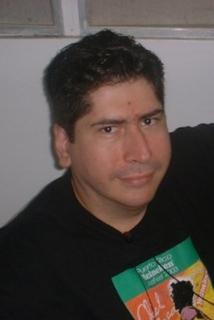An Explanation of a Complicated Man
An Explanation of a Complicated Man
By Joe Barbosa
I have read Barack Obama’s Dreams of my Father (1995) and The Audaciy of Hope (2006) which constitute a basis for understanding a phenomenon called Barack Hussein Obama. In a faultless interesting narrative Obama offers, to those of us who are interested, an intimate look into his very magnificent mind. If one believes, as I do, that every person creates rules and regulations to interpret and understand one’s reality, then those two books give us at least a glimpse of the created comprehensive reality that impels him to push for human collaboration in the face of powerful and obstinate opposition.
At the end of the first bestseller he states that his father and granfather did not grasp the fact that one cannot re-create oneself alone. He had gone to
The familiar camaraderie that arises naturally with his blood brothers and sisters makes him pause and reflect on why he needed a completed identity. One that became more American by contrast with his African heritage while at the same time, enhancing his selfconfidence by acknowledging desirable human traits abundant in the bucolic and backward setting where some of his relatives still live. Throughout the narrative, the leadership qualities of the Obamas in Africa seem to be an inheritence he has received from his African side that in
In the Audacity of Hope the reader is treated to a selfconfident Obama who wants to bridge “the politics we have and the politics we need.” (p.22). Since he is conscious of the fact that “a gap exists between our professed ideals as a nation and the reality we live everyday.” (p.23). Obama, the politician, has found the camaraderie he admired in
He does not mention the following golden prayer but seems to be acting it out God grant us serenity to accept the things we cannot change, the courage to change the things we can, and the wisdom to know the difference.” Amen! To admirers of Kennedy’s Profiles in Courage, Obama’s first two books must resonate and make one wonder what would have happened if JFK had not been assassinated. However, President Kennedy’s murder ironically triggered the legal changes that produced the conditions that propitiated the rise of intellectual black Americans such as Barack and Michelle.
Getting back to the two books that were written before Obama was elected president, the reader cannot escape the feeling that everything he relates establishes the platform for a crusading president who is confronting decided opposition to the changes that he sees as unavoidable to maintain the
It is Obama’s multicultural experience that ignites the conviction of us Statehooders, that the “more perfect union” he is striving for, assures Puerto Rico its proper place in the
*****



0 Comments:
Publicar un comentario
<< Home